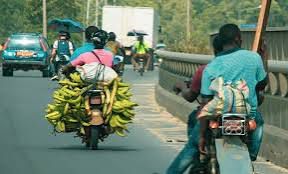
Cameroon, often referred to as “Africa in miniature” due to its diverse geography and cultures, is facing a multitude of pressing issues that have persisted under the long-standing regime of President Paul Biya. In power since 1982, Biya’s government has been criticized for its inability to address the country’s most significant challenges, including political instability, economic hardship, social unrest, and widespread corruption.
Political Instability and Anglophone Crisis
One of the most pressing issues in Cameroon is the ongoing Anglophone crisis, which has escalated since 2016. The conflict arose from grievances among the English-speaking regions of the Northwest and Southwest, who feel marginalized by the predominantly French-speaking government. The situation has led to violent clashes, with reports of human rights abuses by both government forces and separatist groups. According to the International Crisis Group, over 3,000 people have died, and more than 700,000 have been displaced since the conflict began.
Local leaders, such as Ayuk Tabe Julius, the leader of the Ambazonia separatist movement, have called for independence, citing the government’s failure to address their demands for greater autonomy. Despite international calls for dialogue, Biya’s administration has largely responded with military force rather than negotiation, exacerbating the crisis.
Economic Hardship and Corruption
Cameroon’s economy, once considered one of the most promising in Central Africa, is now plagued by corruption and mismanagement. The country ranks 149th out of 180 in Transparency International’s Corruption Perceptions Index, highlighting the pervasive graft that undermines development. The oil and agricultural sectors, which are vital to the economy, have suffered due to misallocation of resources and lack of investment in infrastructure.
Local businesses struggle to thrive in an environment where corruption is rampant. For instance, the case of the Cameroon Development Corporation (CDC), one of the largest employers in the Southwest region, illustrates the economic challenges. The company has faced significant setbacks due to the ongoing conflict, leading to layoffs and reduced production, further exacerbating unemployment in the region.
Social Unrest and Human Rights Violations
The social fabric of Cameroon is fraying, with increasing unrest fueled by economic disparities and political repression. The government’s heavy-handed approach to dissent has led to widespread human rights violations. Activists like Mancho Bibixy, who was imprisoned for advocating for the rights of Anglophone Cameroonians, exemplify the regime’s intolerance for opposition.
Protests have erupted across the country, with citizens demanding better living conditions, access to education, and an end to police brutality. The government’s response has often been to deploy security forces to qu
ell dissent, resulting in violent confrontations and further alienation of the populace.
Conclusion: A Call for Change
As Cameroon grapples with these multifaceted challenges, the question remains: how long can Paul Biya’s regime continue to ignore the cries of its people? With the next presidential elections approaching, there is a growing demand for political reform and accountability. Citizens are increasingly aware of their rights and are calling for a government that prioritizes their needs over the interests of a select few.
The time for change is now. Cameroonians deserve a government that listens, engages in meaningful dialogue, and works towards a peaceful and prosperous future. As the nation stands at a crossroads, the hope for a brighter tomorrow hinges on the willingness of its leaders to confront the pressing issues head-on and to foster an environment of inclusivity and progress.




